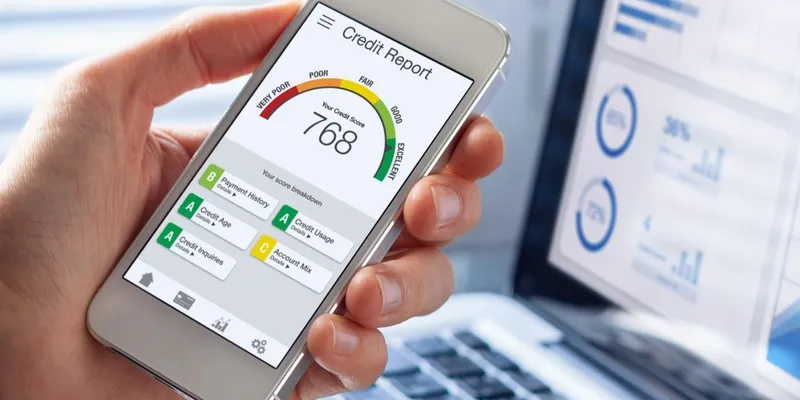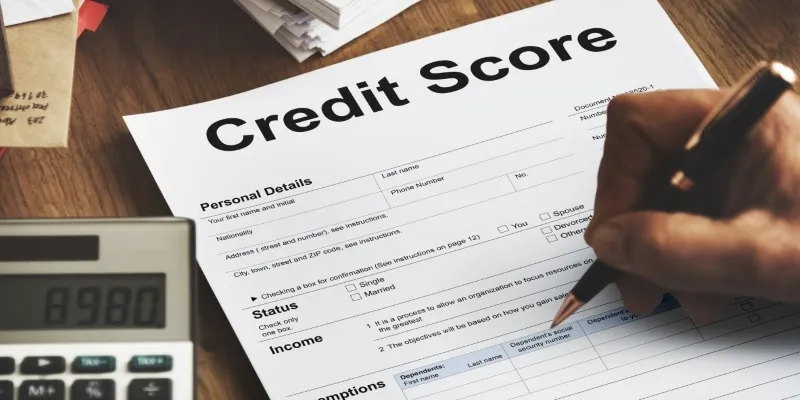Landlord Credit Check: Why It"s Essential for Choosing the Right Tenant
As a landlord, one of your most important responsibilities is selecting reliable tenants. A good tenant ensures steady rental income and maintains your property, while a bad tenant can cause financial strain and property damage. Conducting a landlord credit check is one of the best ways to assess a potential tenant’s reliability. This check provides valuable insights into a tenant’s financial habits, such as their ability to pay rent on time, handle bills responsibly, and care for a property.

A landlord credit check does more than identify red flags; it offers peace of mind, enabling you to make informed decisions when filling your rental unit. It’s a crucial step in reducing risks like late payments or evictions, which can negatively impact your rental business. In this article, we’ll explore why a landlord credit check is essential, how to conduct one, what to look for in a credit report, and how to ensure the process is fair and effective.
What Does a Landlord Credit Check Involve?
A landlord credit check is a background check focusing on a potential tenant’s credit history. It’s a tool for landlords to evaluate how a tenant might handle rent payments. Typically, you’ll need the tenant’s permission to access their credit report. This report details their past and current financial behaviors, such as debts, late payments, and bankruptcies.

Most landlords incorporate credit checks into a comprehensive tenant screening process that includes verifying income, checking rental references, and reviewing criminal history. A credit check is particularly insightful as it reveals financial behavior patterns, often indicative of future rent payment reliability.
A tenant’s credit history will generate a score, usually between 300 and 850, with higher scores being preferable. Timely bill payments and financial responsibility typically result in a higher score. A lower score may suggest higher risks regarding rent payments.
Why Should Landlords Perform Credit Checks?
The primary goal for landlords conducting a credit check is risk management. Renting to financially responsible tenants reduces the chances of late payments, unpaid rent, and evictions. A landlord credit check provides insights that aid in decision-making:
Payment History
One critical aspect of a credit check is the tenant’s payment history. A history of late payments or loan defaults can be a red flag, suggesting potential struggles with timely rent payments, which could lead to financial instability for you as a landlord.
Debt-to-Income Ratio
The credit report reveals a tenant’s current debt level. This ratio helps determine how much of their monthly income goes toward debts like credit card payments and loans. A high debt-to-income ratio may indicate financial overextension, potentially impacting rent payment capability.
Bankruptcies and Foreclosures
Bankruptcy or foreclosure history can be significant warning signs. These events suggest past financial mismanagement. While bankruptcy doesn’t automatically disqualify a tenant, it’s crucial to consider it alongside other factors.
Evictions
A credit check can reveal if the tenant has been previously evicted. An eviction history may suggest past tenant issues, increasing the risk for your rental property.
Understanding these credit report elements enables landlords to make informed decisions. A tenant with a strong credit history and low-risk profile is less likely to cause issues, reducing the need for costly eviction processes.
How to Conduct a Landlord Credit Check?
Before performing a credit check, landlords must obtain written consent from the prospective tenant. This is legally required in many jurisdictions to avoid legal complications. The process typically involves these steps:

Ask for Permission
Begin by requesting written permission from the tenant to run a credit check. This step complies with privacy and consumer protection laws.
Choose a Credit Reporting Agency
Landlords can use various services to obtain a credit report. Credit reporting agencies like Equifax, Experian, and TransUnion offer reliable options. Many online tenant screening services also provide credit reports as part of a comprehensive package.
Review the Report
Carefully review the tenant’s credit report, focusing on payment history, debt load, and any bankruptcies or evictions. Look for inconsistencies or issues indicating financial instability.
Make Your Decision
After reviewing the credit report, decide if the tenant is suitable for your rental property. Establish clear guidelines for acceptable credit reports. For example, you might consider a tenant with a credit score below 600 as too high-risk, or you may be more lenient based on the situation.
Conclusion
Conducting a landlord credit check is essential for selecting the right tenant. It provides valuable insights into a tenant’s financial behavior, helping landlords assess the likelihood of timely rent payments and avoiding costly eviction processes. However, approach credit checks fairly and responsibly, considering all aspects of a tenant’s background and circumstances.











